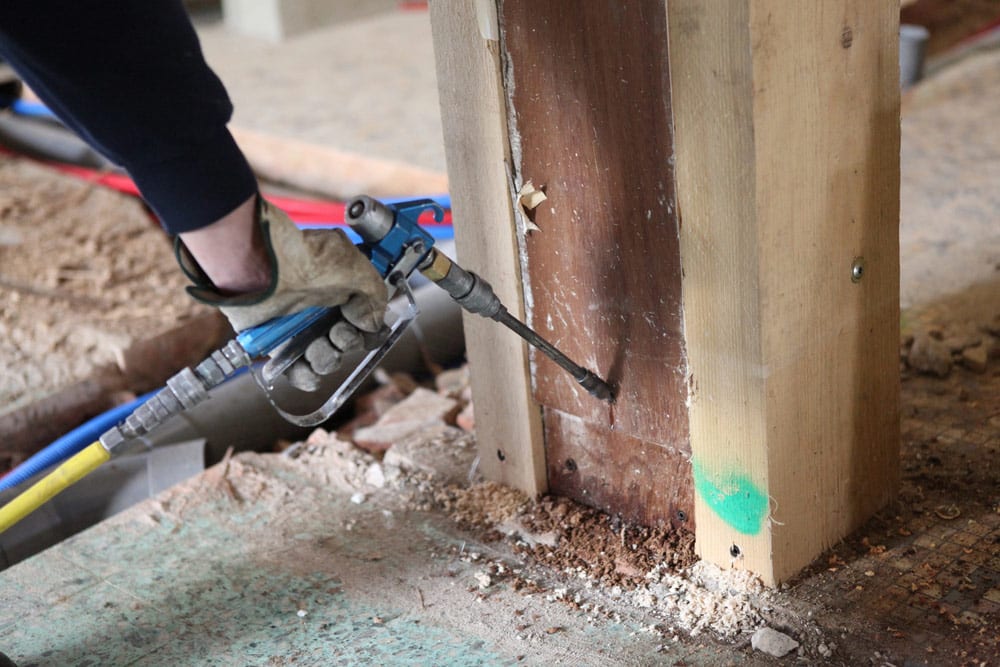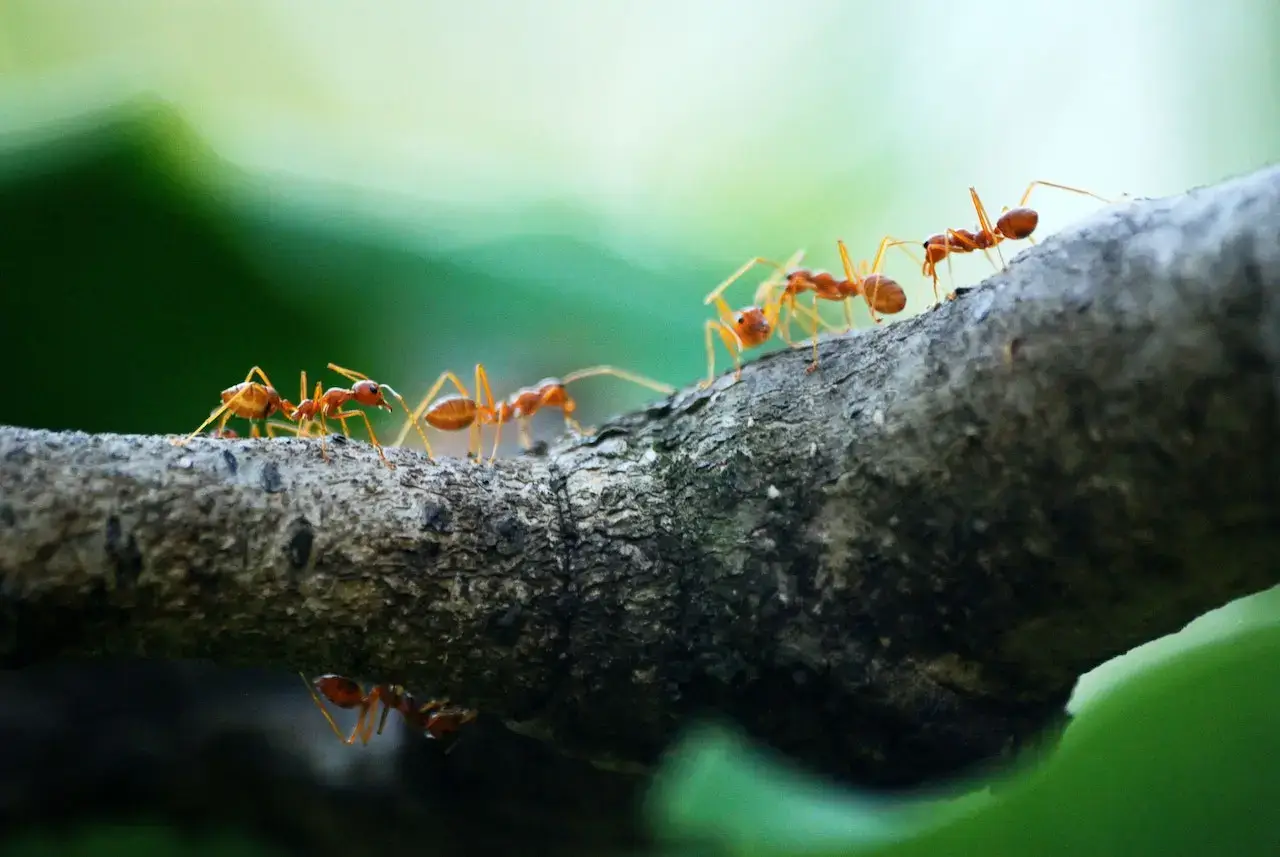Total Ant Control: Techniques and Services to Defeat Ant Problems
Total Ant Control: Techniques and Services to Defeat Ant Problems
Blog Article
Ecological Effect of Parasite Control: Balancing Effectiveness With Sustainability
The ecological impact of insect control is an essential concern that requires a delicate equilibrium in between attaining performance in handling bugs and making sure sustainability of our ecological communities. As we make every effort to shield our plants, homes, and wellness from the dangers posed by insects, the techniques we use can unintentionally damage the environment. From using damaging chemicals that seep right into our dirt and water to the unplanned consequences on non-target types, the consequences of traditional bug control methods are far-reaching. There are emerging strategies that use hope for an extra lasting method to pest administration. These services not just aim to resolve the prompt pest troubles however additionally consider the long-lasting health of our planet.
Hazardous Chemicals in Pest Control
The use of dangerous chemicals in pest control presents considerable ecological and health dangers that necessitate careful consideration and reduction techniques. Herbicides, chemicals, and pesticides are commonly used to eliminate parasites, yet their prevalent application can lead to unplanned repercussions. These chemicals can contaminate dirt, water resources, and the air, impacting not only the targeted parasites however additionally useful bugs, wild animals, and people.

To attend to these risks, incorporated parasite monitoring (IPM) techniques are being advertised as a much more lasting choice. IPM entails a combination of techniques such as biological control, habitat control, and the targeted use chemicals as a last hope (ant control winston salem nc). By embracing a holistic method to pest control, we can reduce the ecological and wellness influences connected with hazardous chemicals while properly handling pest populaces
Effect on Non-Target Species
Thinking about the unplanned repercussions of parasite control methods, the impact on non-target species is an important aspect that needs extensive evaluation. While bug control steps intend to target specific insects, other organisms in the ecosystem might be accidentally affected. Non-target species, including beneficial insects, birds, mammals, and even plants, can experience indirect or straight injury from chemical applications or organic control methods.
Insecticides made to combat a particular insect parasite may damage pollinators like bees or natural predators such as ladybugs. Organic control agents, if not species-specific, can present risks to unintended targets, interfering with the ecological equilibrium.
To minimize the effect on non-target varieties, incorporated pest management (IPM) strategies that stress an alternative strategy to pest control are advised. These approaches focus on using eco-friendly techniques, lessening damage to useful microorganisms while efficiently managing pest populaces. Carrying out complete risk evaluations and keeping track of the results of pest control efforts are crucial action in protecting non-target types and advertising total ecological community health and wellness.
Soil and Water Contamination
Unintended environmental repercussions of bug control methods expand past influencing non-target species, with significant ramifications for dirt and water contamination - ant control. Pesticides, herbicides, and chemical fertilizers made use of in insect control can leach right into the soil and pollute groundwater, positioning a risk to both aquatic and earthbound ecological communities.
Water contamination is one more critical issue linked with pest control methods. Overflow from farming fields treated with pesticides can lug these chemicals into neighboring water bodies, affecting marine microorganisms and water high quality. Contaminants in water resources can have far-reaching effects, affecting not just aquatic life however likewise human health and wellness with the consumption of contaminated water or water organisms. To alleviate dirt and water contamination from parasite control activities, integrated bug management methods that prioritize sustainability company website and minimize chemical inputs are vital.
Air Pollution From Chemical Usage
Exposure to air-borne chemicals throughout agricultural applications postures a substantial concern for air pollution control procedures. When pesticides are splashed onto plants, they can volatilize right into the air and form volatile organic compounds (VOCs) and various other air-borne contaminants. These chemicals can add to the formation of ground-level ozone, a significant element of smog that can have detrimental results on human health and wellness, crop performance, and general air top quality. In addition, chemical drift, where chemicals are lugged by the wind to unplanned areas, can bring about the contamination of close-by ecosystems and water bodies.

Strategies for Lasting Bug Control
In the world of agricultural methods, applying lasting parasite control methods is paramount for preserving eco-friendly equilibrium and safeguarding crop returns. Lasting insect control emphasizes making use of eco pleasant techniques to manage bug populaces effectively while decreasing damage to non-target microorganisms and ecosystems. Integrated Pest Administration (IPM) is an extensively adopted strategy that integrates organic, social, physical, and chemical control techniques to attain long-lasting insect administration solutions.
Crop turning and diversification are also effective methods to interrupt pest life cycles and produce much less favorable problems for pests to flourish. Eventually, by integrating these sustainable bug control strategies, farmers can achieve an equilibrium between pest management performance and ecological stewardship.
Final Thought
To conclude, the environmental influence of insect control approaches need to be very carefully considered to balance effectiveness with sustainability. Hazardous chemicals used in parasite control can result in dirt and water contamination, air contamination, and injury non-target species - termite control services. It is essential to execute sustainable parasite control strategies to minimize these negative effects on the setting and promote a much healthier ecosystem for future generations
By adopting an all natural technique to pest control, we can lessen the ecological and health and wellness effects connected with hazardous chemicals while effectively handling pest populaces.

To mitigate the air pollution triggered by chemical usage, it is necessary to adopt incorporated pest monitoring strategies that prioritize the use of non-chemical parasite control approaches, such as plant rotation, all-natural predators, and resistant crop ranges. Sustainable bug control highlights the use of environmentally friendly approaches to handle insect populations properly while lessening harm to non-target microorganisms and environments. Integrated Insect Management (IPM) is a commonly embraced approach that combines organic, cultural, physical, and chemical control approaches to attain lasting pest management services.
Report this page